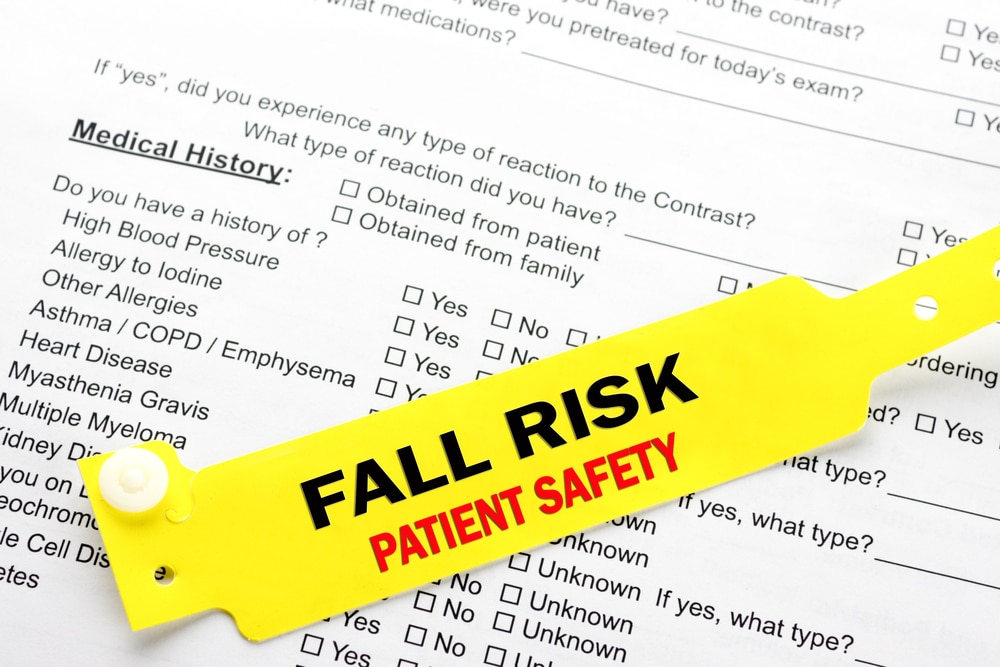Illinois Nursing Home Cited after Fatal Fall

A Sterling, Illinois nursing home is facing a citation by the Illinois Department of Public Health in a tragic incident that resulted in the death of a resident. The citation comes five months after the neglect which led to the resident’s fatal injuries.
Nursing Home Cited after Fatal Fall
On May 11, 2019, a nursing home resident at Regency Care of Sterling fell beside his bed. A Certified Nursing Assistant (CNA) found the resident on the floor laying on his right side. There was no visible injury to his head, and the resident denied experiencing pain. Several hours later, his wife was visiting and noted a change in his condition. The on-staff nurse assessed the resident and found acute changes in his neurological status.
The resident was not talking, would not pick up his feet, and his eyes appeared half open. His physician was notified and 911 was called to transfer him to the hospital. At the hospital, doctors discovered a severe Subdural Hematoma. Sadly, he died six days later as a result of his injuries.
Negligent Handling of Fall Situation
The Illinois Department of Public Health cited Regency Care of Sterling a hefty fine of $25,000 for violating policies and the standard of care. There are several individual issues of negligence in the citation report.
Ignored Fall Risk
The citation notes that the resident’s care plan dated December 2017 clearly lists the patient as a fall risk. He had a prior diagnosis of dementia, weakness, history of falls and use of anti-hypertensive medications.
The resident’s bed had side rails to prevent him falling out of bed. His care plan noted his need for assistance in activities of daily living (ADL) including mobility and ambulation. In subsequent interviews, staff members noted that when the resident was found, the side rails were down. The resident was physically unable to lower them himself.
Delayed Medical Attention
Following the incident, the nurse assessed the resident and he was made comfortable. Staff members at Regency Care of Sterling did not immediately notify his physician. The on-call physician at the resident’s primary care office received a call from the facility’s Licensed Practical Nurse (LPN) at around 11 a.m. This call was four hours after the resident fell. The on-call physician returned the call, advising that the resident be taken to the emergency room.
The physician noted that if she was contacted immediately after the fall, her advice would be the same given the resident’s fall history and medications. The physician noted that “timing is paramount with a subdural hematoma.” She noted that he was a very high risk patient, and that the delay in getting medical attention affected his poor outcome.
Tragic Example of Nursing Home Neglect?
The Illinois Department of Public Health noted that Regency Care at Sterling violated several of their policies, including their Abuse and Prevention policy. This policy states that “Neglect is the failure of the facility, its employees or service providers to provide goods and services to a resident that are necessary to avoid physical harm, pain, mental anguish, or emotional distress.”
Unfortunately for the resident in this fall case, he did not receive proper preventative care or adequate medical attention. Had the facility not been negligent, he may have had a much different outcome.
Is Nursing Home Neglect a Big Problem?
This story is a tragic example of what happens when staff members violate policies and the standards of care. Unfortunately, this incident is anything but isolated. Nursing home neglect happens far too frequently. Some estimates suggest that as many as 95 percent of nursing home residents experience some type of neglect each year. That is a truly alarming number when you consider that the Centers for Disease Control and Prevention (CDC) estimates that there are around 1.3 million nursing home residents in the United States.
Nursing home neglect happens in facilities all across the U.S. Neglect happens in many different ways – some of which are obvious and others are more subtle. Some of the types of neglect commonly reported include:
- Neglecting adequate food and water
- Neglecting personal hygiene
- Failing to maintain safety and security
- Failing to provide physical and mental healthcare
- Neglecting to maintain a resident’s care plan
The results of nursing home neglect are traumatic and devastating. Neglecting a resident’s basic needs or medical needs can lead to:
- Malnutrition or dehydration
- Bedsores
- Falls
- Infections
- Recurring illness
- Head injuries
- Wrongful death
In an environment where residents should receive care, love and support, such outcomes is simply unacceptable.
Do You Suspect Abuse or Neglect?
Not only is nursing home neglect disturbing, but it is also a violation of residents’ legal rights. If you suspect that someone you love is the victim of abuse or neglect, you should take action. Address your concerns with nursing home administrators, or call 911 if the resident appears to be in immediate danger. You can also file a complaint anonymously through Adult Protective Services (APS).
If you are unsure of your suspicions or need advice, contact Nursing Home Abuse Center. Our team of legal professionals can certainly help you determine the best course of action to protect your loved one. If you would like a free attorney consultation, call us at 1-800-516-4783.
Sources:


